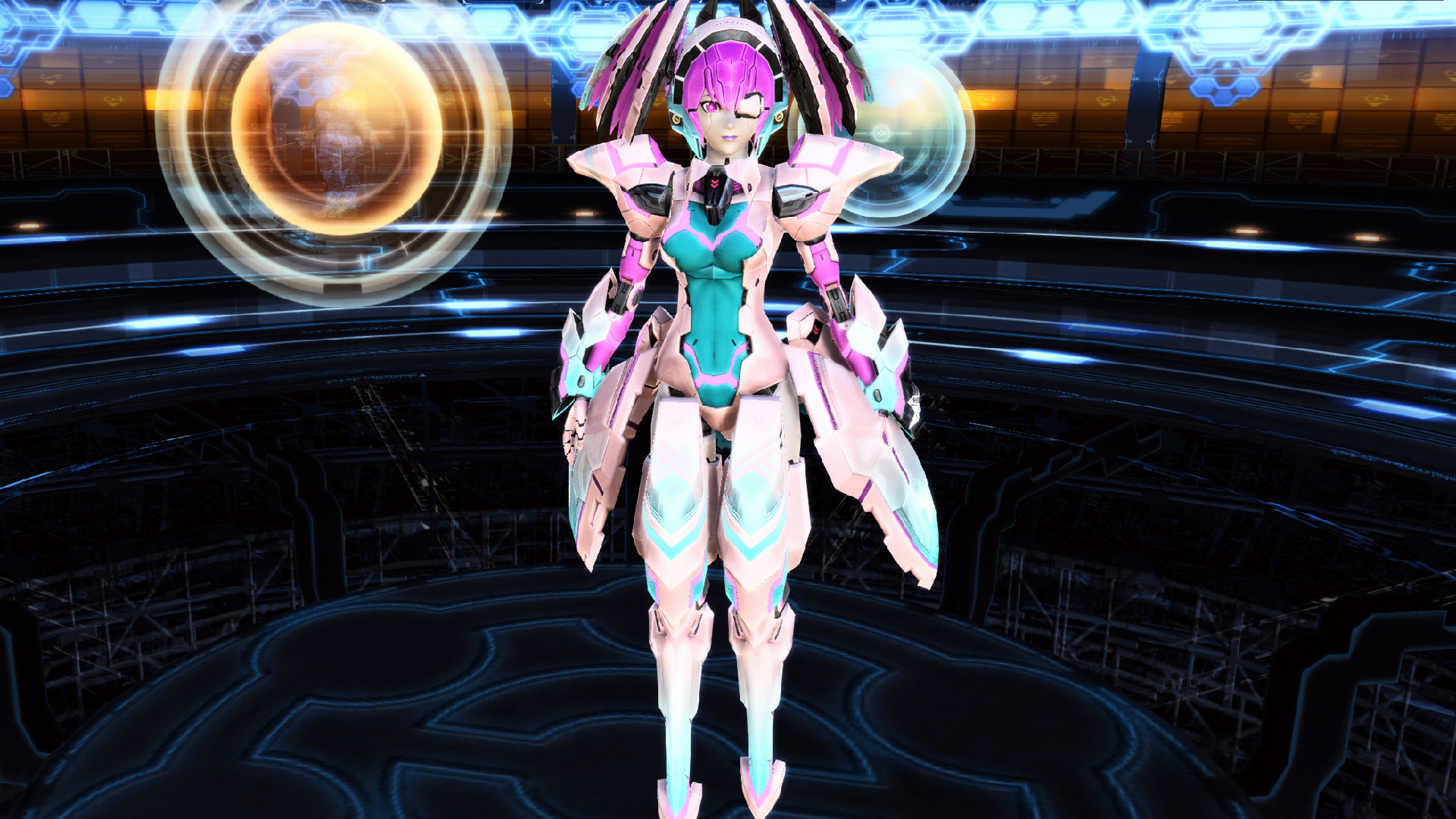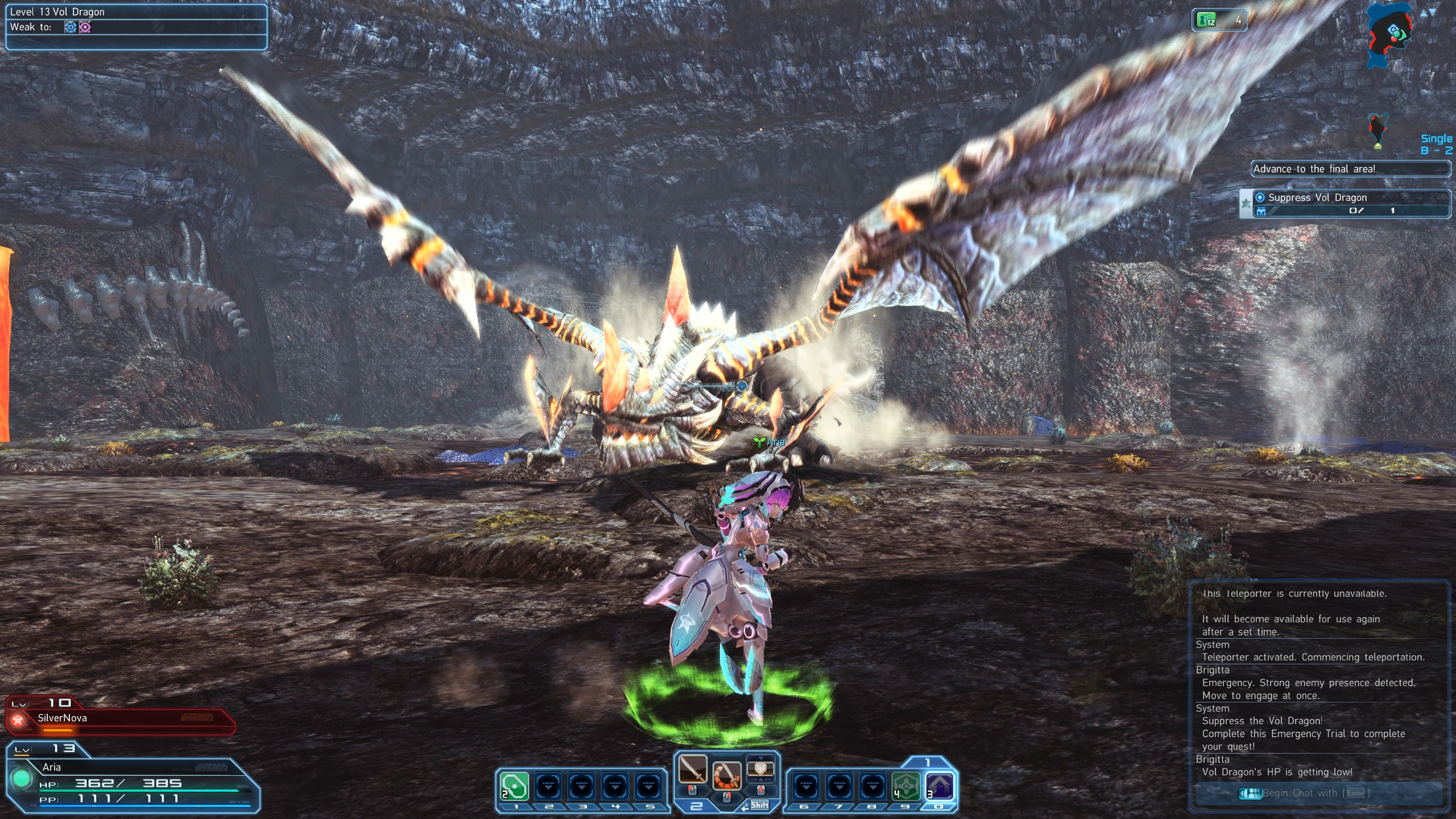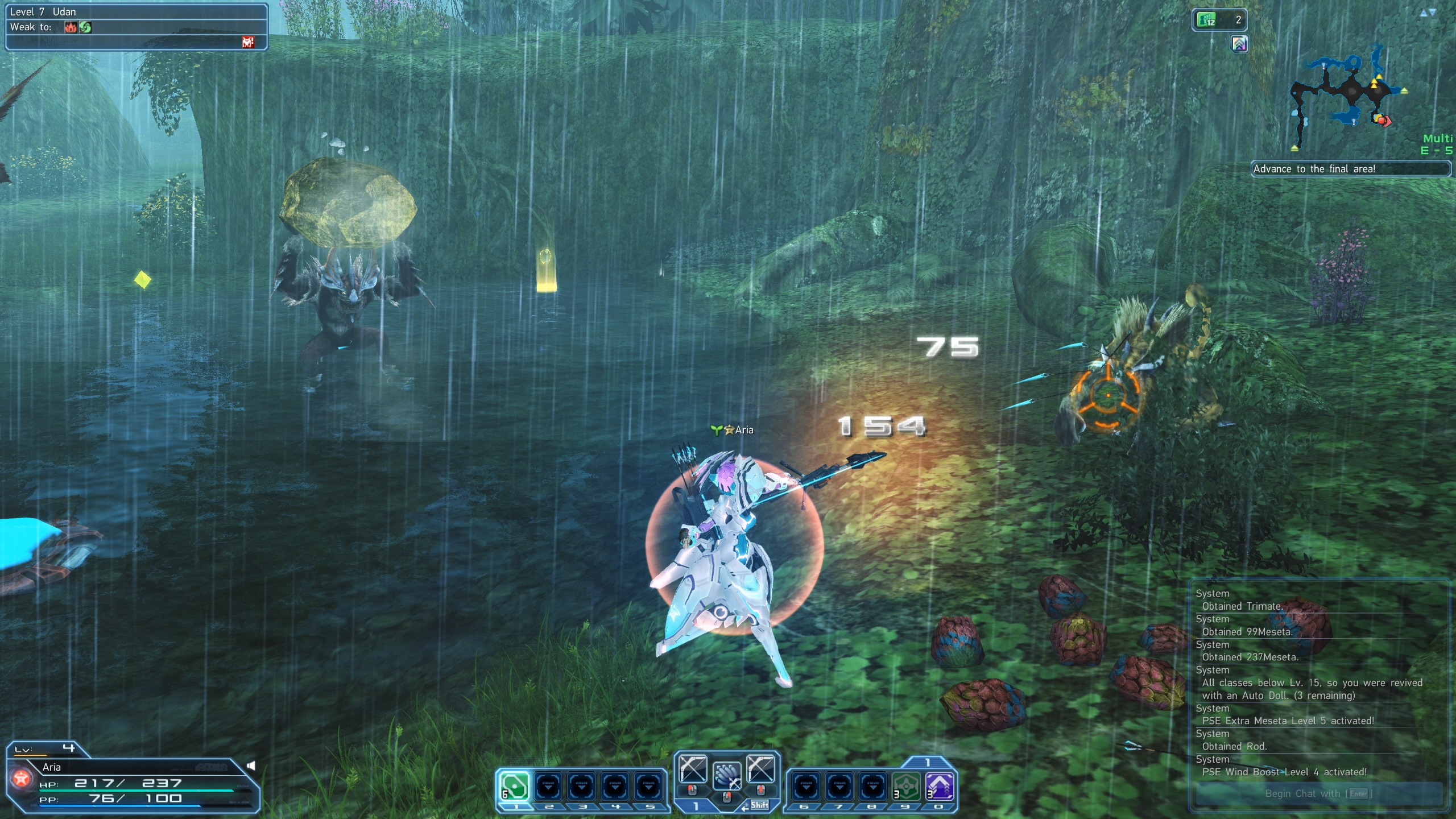Though it shows its age, Phantasy Star Online 2's combat is snappy and fun
The eight year wait is over, but PSO2 isn't a revolutionary MMO.

Phantasy Star Online 2 is an UwU sucker punch so vicious that I felt dizzy when I first saw all the ludicrous ways I could customize my avatar. The character customization options in MMOs are frequently ridiculous (often to the detriment of their own aesthetic), but Phantasy Star Online 2 is so over-the-top I can't help but love the audacity. With just a few minutes in the character creator, I had an eye patch-wearing anime mechagirl with jetpacks for feet who attacks using a katana. It's this kind of zest that makes PSO2 exciting, even if it feels outdated by other MMOs.
For its hardcore fans, the wait for PSO2 probably felt like a bajillion years. Not for me, though. I've never played any Phantasy Star game, and I've spent the last decade only vaguely aware of its mythic status and passionate fanbase. But reputation aside, PSO2 is just another MMO that does some things well and other things not so well. There are a lot of the familiar free-to-play trappings that make this genre so exhausting, and its randomly generated corridors aren't the most exciting battlefields. But the combat slaps so hard that it's a fun distraction for now.
Phight or phlight
As much as I like fighting in PSO2, though, I'm always acutely aware of how old the game is.
If you've played Monster Hunter: World, PSO2 will feel mostly familiar. The general idea is that you take on missions with a group of buds, adventure through untamed forests, volcanoes, and tundras, and repeatedly punch the ever-living shit out of big monsters for rare resources that, in turn, let you punch higher-level monsters. Likewise, there are a ton of weapons to master, which all have different abilities and combos to piece together with a little experimentation.
Fighting fire lizards and cyberdragons in PSO2 feels very different thanks to PSO2's super fun combo system. Each time you attack, a circular indicator appears around your character. If you time your next attack just as that indicator turned red, it'll deal extra damage. It's a simple but clever system. I love how it encourages me to find a rhythm to my attack combos instead of button mashing—especially because different attacks have different timings.
That's really just the combat at its most basic. My Braver, for example, switches between bows and the katana, and each has a very different vibe. With my bow, I can swap camera modes and aim freely instead of relying on autotargeting, which makes pinpointing enemy weaknesses much easier. That might sound a lot like Monster Hunter, but in practice it feels different since I'm fighting much larger packs of enemies at once, and terrain doesn't play nearly as much of a role in fights.
I also very quickly unlocked another three weapon slots, giving me a total of six different hotbars I could swap between in a fight. That's nuts, but I also like how easily I can jump from using a bow to wielding a gunblade, each with their own abilities that are best suited to different situations.
As much as I like fighting in PSO2, though, I'm always acutely aware of how old the game is. Compared to Monster Hunter: World, which expertly makes terrain something players can manipulate in all sorts of creative ways, PSO2's environments so far feel lifeless and boring. There's some open-world exploration where a small number of players share the same map, fighting or taking on randomly spawning quests, but it feels mostly like busywork.
The biggest gaming news, reviews and hardware deals
Keep up to date with the most important stories and the best deals, as picked by the PC Gamer team.

It's disappointing, but PSO2's unique circumstances also make it easy to forgive. It's new for western players, but the Japanese release was in 2012, and there's an endearing charm to how old school it feels. As someone who has spent hours in Final Fantasy 11 and World of Warcraft: Classic recently, I can dig it. Especially because I haven't played another MMO quite like it.
When you look past the similarities to Monster Hunter, there's a wealth of original ideas in PSO2. Mags, for example, are a kind of Tamagotchi pet that follows you around boosting your stats. You have to feed them items to keep them in top shape, but over time what items you give it will influence what stats it buffs and can even unlock secret transformations. There is also alot of what you'd expect from an MMO: personal rooms to decorate, guilds (called Alliances) to join, subclasses to unlock, skill trees to max out, weapons to craft and upgrade, new abilities to find—the list goes on. If there's one benefit to PSO2 taking eight years to release in North America, it's that there's so much to do. Another benefit of its age is that, so far, the launch has been pretty smooth by MMO standards. While many users are having issues with the Windows Store, servers have been stable.

From what I can tell, little of PSO2 is blocked off by arbitrary free-to-play restrictions. There are a few annoyances, like a frustratingly small inventory (items can thankfully be sent to storage from anywhere), and, while hanging out in the main hub, I feel a familiar-if-gentle pressure to buy stuff to make my adventure just a little more convenient.
Whether you'll want to put up with that friction and push on to PSO2's endgame is going to rely entirely on how well you jibe with the combat. But it's absolutely worth a try—if only just to see what kind of crazy-ass character you can make with its incredibly detailed character creator. Similar to games like Warframe and Diablo 3, you're going to spend 95 percent of your time hitting the same enemies over and over, hoping for that one lucky upgrade with a painfully low chance to drop. Some of those upgrades might actually be exciting, like powerful new abilities, but most will be trash or marginal upgrades. How long the novelty of being a katana-wielding Gundam girl will last is hard to say. But if you're keen on playing a grindy sci-fi Monster Hunter and, like me, find outdated games kind of charming, PSO2 is worth a try.
With over 7 years of experience with in-depth feature reporting, Steven's mission is to chronicle the fascinating ways that games intersect our lives. Whether it's colossal in-game wars in an MMO, or long-haul truckers who turn to games to protect them from the loneliness of the open road, Steven tries to unearth PC gaming's greatest untold stories. His love of PC gaming started extremely early. Without money to spend, he spent an entire day watching the progress bar on a 25mb download of the Heroes of Might and Magic 2 demo that he then played for at least a hundred hours. It was a good demo.


